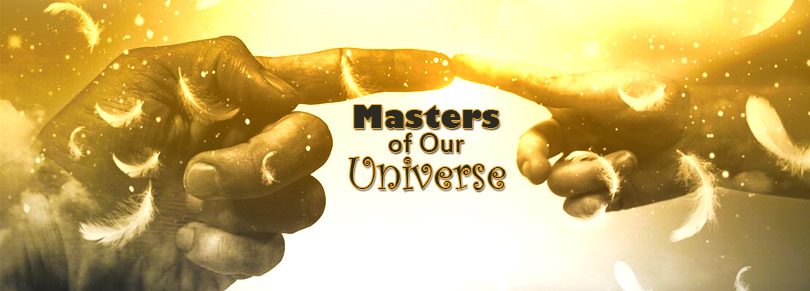I had to identify potential customers in my field while they were still young and in training, and 5-10 years before they made an impact on their world. I was then to engage them in innovative ways, so that when they did make it big, we had left a mark and they knew who was with them all along and who helped them in their endeavours.
If we were successful, we would have ‘imprinted’ them, a concept based on Nobel laureate Konrad Lorenz’s research with goslings. Therefore we could gain in multiple ways from their loyalty. That was when I wished I had the same powers as what the second century biographer of the Twelve Caesars, Suetonius says of the early life of Gaius Octavius Thurinus. He narrates the following incident as taking place just after Julius Caesar’s assassination in 44 BC.
Knowing that his grand uncle has been assassinated, 19 year old Gaius and his friend Marcus Vipsanius Agrippa, both of who were at Apollonia, a Greek colony in Illyria (modern day Albania I believe), decide to visit Theogenes, an astrologer. Agrippa consults the fates about his fortune, and Theogenes predicts great things for him. He would be the second in command to the master of the universe, and conquer on his behalf; he would marry the daughter of the master of the universe, etc.
Not expecting his fortune to be that grand, Gaius motions to his friend to leave together before they learn of its potential mediocrity. Theogenes however stops them and then falling to his knees, bows down to Gaius, and says ‘behold the master of the universe.’ Gaius goes on to become Caesar Augustus. Not long afterwards, as Classicist J. Rufus Fears explains, he was so confident of his greatness that he published his horoscope, and struck a silver coin bearing the image of Capricorn, the sign under which he was born.
In the absence of such powers of divination as attributed to Theogenes (which I think has nothing more than anecdotal value), I had to settle for more mundane ones such as research to identify the likely masters of my universe.
So who are the masters of our universe? Who or what gives us our raison d’être? Could it be something as harmless as music or a musician maybe; the movies or an actress; surely sports stars.
As a teenager, I had posters of my heroes on my bedroom wall. If any were scantily clad members of the distaff side, they would be promptly placed on the back of my room door which would face the wall when opened so that anytime my mom opened the door and came into the room, it would naturally disappear. Others would be placed high up on the wall so that it would take more than a little effort for her to do something about it.
But sooner than later, with little more than a long broom, she could do the needed damage. Our heroes in many ways give us our identity. The eminent sociologist Robert Merton developed the terms ‘role model’, ‘reference group’, ‘unintended consequences’ and ‘self- fulfilling prophecy’ among others to describe many such concepts pertaining to the subject. We understand the term role model. In talking about reference groups, he says that it is the group to which a person relates or aspires to relate himself psychologically. ‘It becomes the individual’s frame of reference and source for ordering his or her experiences, perceptions, cognition, and ideas of self.’
| We are often impacted by things we cannot anticipate or control. I wonder how much more, are the subtle but definite effects our role models and reference groups have on our – and therefore our children’s – lives. Nevertheless, the moral is not to sit back and throw our hands up. Rather, it is to try and understand and then order our lives by those ideas – and more importantly, people – that matter in the long run. |
Most of us I presume indulge in some form of entertainment, be it music, the movies, sports or any other that we can avail. Many of us are fascinated by the legends of the genre we listen to, or watch. I am reminded about this one Indian actor who turned to politics and was rather successful in it, because his cinematic aura successfully manifested in his electoral campaigns. I recall reading with shock that among the poor, mats with his image imprinted were rented out to women so that they could ‘lie with him.’ Another actress apparently appeared topless on a magazine cover, and that was cause célèbre for a temple to be built on her behalf by adoring fans, eh…devotees.
It is hard to believe that Richard Wagner would have the effect he had on the German people and that his music and even musings would flame their anti-Semitism. How is it that Ludwig II, the king of Bavaria would build him a temple, the Festspielhaus in Bayreuth? And how is it that Nietzsche – arguably one of the two most influential of 19th century philosophers on the 20th century (Marx being the other) – would be intoxicated by him and literally got ‘sick’ on him as he wrote ‘The Case of Wagner’?
As historian Jonathan Steinberg explains, together they became godparents of a movement that in turn affected Hitler so much so that on July 29, 1943, the latter presented his friend Benito Mussolini on his 60th birthday with a leather bound copy of Nietzsche’s complete works as a birthday gift. Think with me on this. How legitimate would a prescient parent’s warning be to his children, in reconsidering their choice of heroes, well before any of the consequences works its way through?
Would his admonition hold any water? How should a person order his or her life in a culture deeply in adoration of celebrities? I have a rule by which I try to order my life – ‘In Essentials Unity, In Non-Essentials Liberty, In All Things Charity’, charity being the old English word from the Latin ‘Caritas’ meaning grace. It comes from a German Lutheran theologian of the early seventeenth century, Rupertus Meldenius who phrased it during the Thirty Years War (1618–1648), a time in European history in which religious tensions played a significant role. If only we would identify our essential values and apply this principle as consistently as we could.
In raising our families, I believe we need to identify the core values essential to our lives and order our and our family’s values around them. These cannot be compromised for they are non-negotiables. We need to put our stake in the ground on them.
And they need to revolve around the great questions such as ‘Is there a God?’ ‘If so, can I know Him?’ ‘If not, how do I order my life? Can I be my own master?’ ‘Are there absolutes? If so, how come? If not, why may I not be the master of my universe?’’ In all other areas – choice of music, etc. there needs to be liberty. As St. Augustine put it, ‘Love God and do as you please.’ But we need to determine who our God is.
I believe that if Jesus is truly our first love, all other loves – that of music, movies, etc. – will in all likelihood be ordered right. Was it not C.S. Lewis who put it something like if first things are first, everything will be in order. If first things are not first, then nothing will be in order. Sadly, we could very well be one of the last to know when they are not. That’s how devious our minds are.
And I shudder at the thought. I shudder at the thought that my children are looking to me with their doubts, to elucidate these values and give clarity on a wide number of subjects. As they do, they see me and my ways more clearly than ever before.
Psychologist Jim Dobson talks about how with children, more is caught than taught. That does put the fear of God in me. I have nurtured my appetites from a very early age, and the older I get, the more naturally I exercise them, many times being oblivious to them, while all the time they are evidently clearer to those around me. That’s why we need to be careful about what our children learn and on whom, they imprint as they grow.
From these, they will naturally imbibe. While I am called to reflect the truth wisely and graciously to them, I realize that I need to be vulnerable to them, letting them know that I am just as weak as the next man (and in my case, weaker). I am but a mere pretender who will lead them and their kind astray, if my first love is not Jesus. I need to wear the robe of Theogenes and together with my children bow down and say to, and with them about Jesus ‘behold the true Master of the Universe.’





